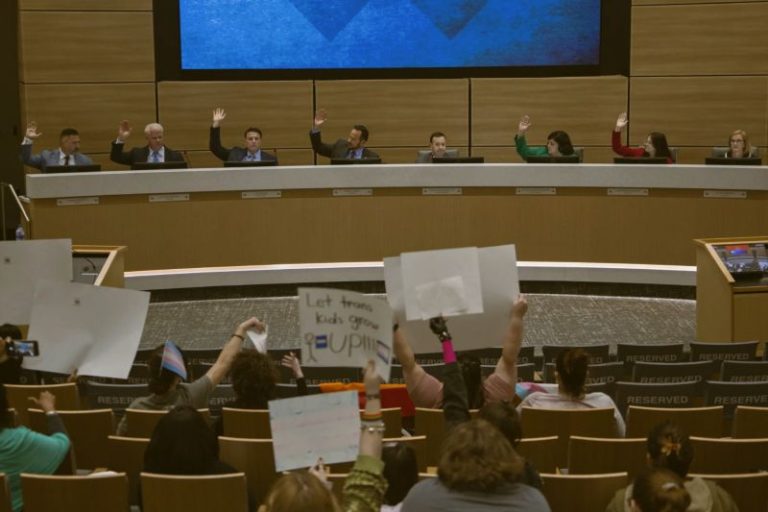

In today’s world, emergencies come in all forms. From wildfires and hurricanes to data breaches and public health crises, the challenges are more complex than ever. Each situation demands skilled leaders who can make quick, informed decisions to protect lives and communities.
But staying prepared isn’t just about experience anymore. It’s also about learning — and learning never really stops. That’s where online education steps in. For professionals working in public safety, emergency response, or crisis planning, online programs offer a way to keep growing without putting their careers on hold.
This shift toward flexible, online learning is reshaping how emergency professionals gain knowledge, share ideas, and develop leadership skills. Let’s explore how online education is changing the future of public safety and crisis management.
1. Education That Empowers Emergency Leaders
Public safety leaders carry huge responsibilities. They deal with disasters, manage teams, and coordinate with government agencies — often under intense pressure. Education plays a key role in helping them stay ready for what comes next.
In the past, many professionals couldn’t pursue advanced education because of long work hours or travel restrictions. Now, with online programs, that barrier is gone. They can study anywhere and apply what they learn immediately on the job.
For example, professionals can strengthen their skills and leadership abilities through a master’s degree in emergency management online, which combines flexibility with real-world applications. These programs are built for working adults who want to grow into higher-level leadership positions in emergency management, homeland security, or disaster planning.
Online courses often focus on problem-solving, decision-making, and critical thinking. Students discuss real-world scenarios, analyze past emergencies, and learn to build strategies that can save lives. The goal is simple — to create confident, informed leaders who can take charge when crises hit.
2. Flexibility That Fits Real Lives
One of the biggest advantages of online education is flexibility. Many people in public safety roles — police officers, emergency planners, or healthcare workers — work unpredictable hours. Taking time off for classes isn’t realistic.
Online programs solve that problem. Students can watch recorded lectures after their shifts, complete assignments on weekends, or join discussions from home. It gives them control over when and how they learn.
This flexibility also reduces stress. Instead of rushing to campus, students can study at their own pace. They can focus more deeply on subjects that matter most to their careers. Many also find that online education helps them balance their personal lives better.
Modern online platforms are also very interactive. Students can connect with classmates, ask questions, and get feedback in real time. Instructors often bring years of experience from the field, making discussions both practical and insightful.
3. Real-World Learning Through Technology
Online education has come a long way. It’s not just reading and quizzes anymore. Today’s programs use technology to create realistic, hands-on learning experiences.
In emergency management programs, students might use simulations to test crisis response plans. They can practice decision-making in virtual disaster scenarios or develop communication strategies for large-scale emergencies.
This kind of learning helps students apply theory to real-world challenges. It builds confidence because they’re not just studying from a textbook — they’re practicing how to lead.
Online platforms also give access to global perspectives. Students can learn from classmates in different parts of the world, each bringing unique experiences with natural disasters, homeland security, or public safety. This diversity helps shape a broader understanding of how different communities handle emergencies.
4. Building Stronger Communities Through Knowledge
The impact of online education doesn’t stop with individual learners. It spreads to the communities they serve. When emergency professionals improve their skills, everyone benefits.
Leaders who understand crisis management can design better plans for disaster response. They can train their teams more effectively, coordinate with local agencies, and build public awareness. When a community is prepared, it recovers faster and stronger.
Online education also helps bridge communication gaps between different organizations. Students often come from various sectors — law enforcement, healthcare, or government. Learning together helps them understand each other’s roles and challenges. That shared knowledge leads to better teamwork during real crises.
Community preparedness depends on strong leadership, clear communication, and trust. Education supports all three. When professionals grow in their roles, they bring back knowledge that protects lives and builds resilience.
5. The Growing Demand for Skilled Emergency Managers
Across the country, the demand for skilled emergency management professionals keeps rising. Natural disasters are becoming more frequent. Cyber threats are growing. Even small towns need trained leaders who can plan, respond, and recover effectively.
Employers now look for candidates with both hands-on experience and advanced education. It’s not enough to react — leaders need to think strategically, understand policy, and work across multiple agencies.
That’s why many professionals turn to online graduate programs. They can keep working while earning credentials that open new doors. Programs like these teach them how to manage budgets, coordinate multi-agency responses, and develop long-term preparedness strategies.
A strong educational foundation makes a big difference in how organizations handle emergencies. Trained leaders know how to prioritize resources, make quick decisions, and lead teams with confidence.
The combination of real-world experience and specialized education is shaping a smarter, more adaptable public safety workforce.
Online education is more than just a convenient way to earn a degree. It’s changing how people learn, grow, and lead in the world of public safety and crisis management. With its flexibility, accessibility, and focus on real-world applications, it’s helping professionals stay ahead in a fast-changing environment.
For many, it’s also opening doors that were once out of reach. It allows people already working in demanding fields to keep learning without stepping away from their responsibilities. And as more professionals gain these skills, communities everywhere become better prepared for whatever challenges may come. The future of public safety depends on strong, educated leaders. Thanks to online education, those leaders are learning, adapting, and making a difference — one class, one lesson, and one decision at a time.


